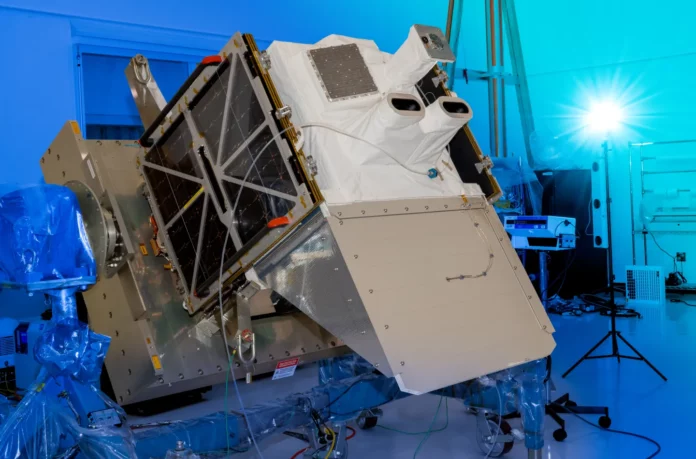A satellite that monitors global methane pollution has gone missing, jeopardizing a mission that has received overwhelming support from Jeff Bezos and other tech leaders.
Methane is the main ingredient in so-called “natural gas,” which surpasses carbon dioxide in its ability to heat the planet. The potent greenhouse gas regularly leaks from oil and gas wells, pipelines, and other fossil fuel infrastructure without anyone seeing or reporting it. MethaneSat was supposed to detect such leaks from space to hold the industry accountable for reducing these emissions.
But since June 20, mission operators have been unable to contact MethaneSat. The satellite lost power and is “likely beyond recovery,” according to the nonprofit Environmental Defense Fund, which developed MethaneSat.
The satellite cost $88 million to build and launch, and received a $100 million grant from the Bezos Earth Foundation. It was launched last March from a SpaceX Falcon 9 rocket, not a Blue Origin rocket. The launch was the first space mission funded by the New Zealand Space Agency, which provided flight control and supported the scientific program for the study of the atmosphere.
Prior to the launch of MethaneSat, EDF had to measure methane on the ground and with airplanes to detect gas leaks. This painstaking work proved to be revealing: it found that methane emissions in the United States between 2012 and 2018 were 60 percent higher than the Environmental Protection Agency’s estimates.
By capturing data from space, MethaneSat would have surveyed the area in about 20 seconds, which would have taken an airplane 2 hours. Orbiting the Earth in 95 minutes, it would cover oil and gas fields that account for more than 80 percent of global production.
Google is also working with EDF to track methane emissions. Using a strategy similar to the way Google Maps identifies sidewalks and road signs in satellite imagery, the company has begun training artificial intelligence to detect well pads, pumping stations, storage tanks, and other infrastructure related to fossil fuel production.
EDF says it is still working on processing the data that MethaneSat has been able to collect since its launch, which it hopes can be used to limit methane pollution.









